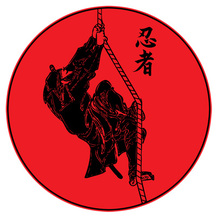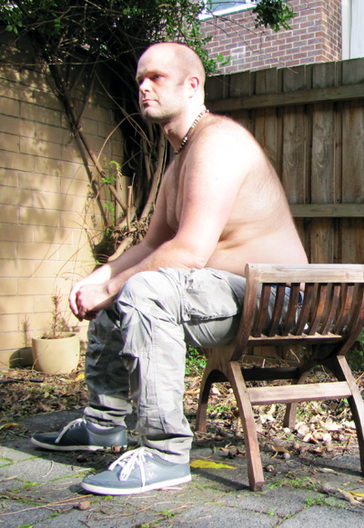 I’ve been reflecting lately. Twenty years is a long time to have been exercising. I started training at a Ninja school when I was thirteen; that’s twenty-one years ago – and I kept that up for a little over a year. At age sixteen, I started training in Southern Shaolin Kung Fu, and since then I haven’t gone for longer than a three month period where I wasn’t actively training in one method or another. It’s been a long time, and it has been very consistent. I have sometimes wondered why other people don’t seem to enjoy exercise like I do, but I also feel like I lost perspective too long ago to be able to work it out. I have explored a lot of movement styles over the last two decades, including: Ninjutsu Kung Fu and Wushu (Southern Style, Shaolin, Northern Long Fist, Cannon Fist, Weaponry) Tai Chi Qigong and Meditation Running, Jogging and Skipping/Jump Rope Acrobatics and Trampolining Weightlifting Yoga – Ashtanga and Bikram And those were really just the notable activities. I’ve also played around with fencing, cycling (often just for transport), swimming, Feldenkrais, Hip Hop, and some incredibly old-school Samurai martial arts (Naginatajutsu). So when I stop to think about it, it is a lot of training and frankly, the fact that my body isn’t completely riddled with injuries is kinda cool and a bit rare. I have come to see things differently over time. Realisations occur when you’ve been through enough life experiences, and values start to shift. I do understand now, that what currently works for me really won’t be what works for me in the future – and not as some vague sentiment; it is palpable. Totally real, a known truth. And I’m not worried about whether or not I’m doing the ‘right’ things, whether it’s at all efficient or goal-oriented or any of that stuff – I’ll be around a while I expect, and what’s satisfying now – well, it’s not going to be the same in the future. All things change over time. At the moment, I’m gravitating back towards more martial arts training, and weightlifting might fill a smaller part of my training life in coming years. When I was a child, weightlifting intrigued me, but due to the limited belief that children should not lift, I didn’t have the chance to explore it. I only started weightlifting a relatively short time ago. I have trained in many groups with several coaches, but you might also notice that the sports and movement styles I have specialised in are basically solo activities. I was never into team sports. I don’t always play well with the other children, and if you just want to be fit, you don’t have to be competitive or extroverted. Currently I walk, I practice Kung Fu and Tai Chi, I lift weights, and once a fortnight I’m learning kickboxing.  And notably, I only train with people who I trust to treat me with respect. And I value those who do so very much, for their rare kindness and their expertise. And after twenty years of training, this is what I look like. Fairly normal, I think; not a fitness model. I have some muscle, some fat, and a bunch of body hair. This is reality. I wouldn’t mind if my arms were a little thicker and my waist more slender. But this is where I’m at. I’m not injury-free, but I am working on what I can work on, and I’m rehabbing my way through to improved strength and function. Last I checked, I could do sets of 20+ hanging leg raises, all the way up til my feet touched the bar, and I wasn’t really aware of how rare that was. People were always surprised by my abdominal strength – maybe because there was always fat covering my abs. I can row 2,000 meters in about 7:40. And before my most current shoulder injury, I was practicing chin-ups for multiple sets of 8, and sometimes I’d hang an extra 15 – 20 kilograms from my body when doing so. Y’know, for kicks and stuff. I don’t say any of this in an attempt to be elitist. I don’t think ‘function’ makes me any better than the stereotype of a bodybuilder who values form instead. It’s not about being better than anybody. It’s just about being me, and working on what serves me, truthfully, without compensating for some other sense of inadequacy. But these days it seems we are asked to justify ourselves from time to time. How come you’re fat? As my brother once brilliantly replied: how come you expect an explanation for the shape of my body? Why is it strange that we should be proud of our bodies? Why do we need to defend that, to explain it – why would he be proud of that? He’s not that muscular. The correct response is, I believe, the following: I’m proud of my body because it’s fucking awesome, it sustains life, it does a billion things to be proud of every day which defy explanation and fuck you, that’s why. It’s not that I’m athletic. Having listed some of my strengths and history – that’s not what makes me proud. I am currently more proud of my body, and less disordered about food, than I have been since I was a child. I am not the thinnest I’ve ever been, though this is me at my most muscular, and I’m also more injured than I once was. I’m proud because it’s mine. It’s me. So what is the point of training? Of dedicating time and effort to exercise? It’s not what we’ve been told. ‘Health’ still isn’t the reason I train. And fitness is not a look. It’s not a fucking style. It’s something much better: self-knowledge, awareness and understanding. Peace, independence and confidence. Strength and mobility. Freedom. Fitness is something else, if you can bring yourself to it with an open mind. It’s transformative, but not in the way we’ve been told. Discover. Know thyself.
3 Comments
Saroosh Wattoo
12/8/2013 05:43:25 pm
I love this on so many levels. It shouldn't matter if you're BMI is 20 or 70 because you're body is your body. People talk at great length about the horrors of being fat. And in some cases there is some validity in what people say. Some fat people are immobile. Some fat people do suffer from cardiorespiratory problems. Some fat people do suffer from diabetes, high blood pressure, etc etc. But guess what? Plenty of thin people suffer from the same health problems. As a fat person, I would love it if I didn't suffer from certain health problems that may or may not be related to my fatness. And hey, I'd love being a bit thinner if it meant getting less judgment from people and being able to find better clothes (both of these problems are not my fault, though, and I intellectually understand that I am not to blame for them). But here's the thing: there's nothing I can do to address to address those problems that I don't already do with seriously compromising my standard of living.
Reply
Chris
12/9/2013 06:45:25 pm
I had a funny conversation the other day - a friend said "imagine how hard it would be to keep up with a kid if you were fat and unfit" - and it's true, it would be hard - just as it would be hard to keep up with a kid if you were thin and unfit. It's that thing again - when is it really the fatness you can blame? If you don't eat enough, if you have joint dysfunction, if you aren't fit, mobile, strong, flexible or functional, some things are going to be hard. And you can't expect - for your whole life - to be fit and functional. You can't be at your peak forever. Your peak is a peak, not a plateau. But if you can't keep up with your kid, it's not your weight. It's your fitness and function, and vitality and energy, and these can often be addressed - to some measure. And if they can't - if you have chronic fatigue syndrome or any of the many, many problems that can influence your capacity to move or be active - clearly it isn't your weight that's the problem.
Reply
Chris
12/9/2013 06:50:56 pm
And yes. Never apologise. Your body is fucking awesome. It's a living, breathing, walking miracle that we (as a society) abuse and trivialise, and take for granted on a daily basis.
Reply
Leave a Reply. |
